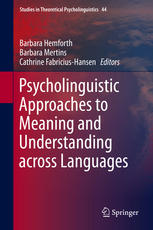

Most ebook files are in PDF format, so you can easily read them using various software such as Foxit Reader or directly on the Google Chrome browser.
Some ebook files are released by publishers in other formats such as .awz, .mobi, .epub, .fb2, etc. You may need to install specific software to read these formats on mobile/PC, such as Calibre.
Please read the tutorial at this link: https://ebookbell.com/faq
We offer FREE conversion to the popular formats you request; however, this may take some time. Therefore, right after payment, please email us, and we will try to provide the service as quickly as possible.
For some exceptional file formats or broken links (if any), please refrain from opening any disputes. Instead, email us first, and we will try to assist within a maximum of 6 hours.
EbookBell Team

5.0
40 reviewsReports on joint work by researchers from different theoretical and linguistic backgrounds offer new insights on the interaction of linguistic code and context in language production and comprehension. This volume takes a genuinely cross-linguistic approach integrating theoretically well-founded contrastive descriptions with thorough empirical investigations. Authors answer questions on the topic of how we ‘encode’ complex thoughts into linguistic signals and how we interpret such signals in appropriate ways. Chapters combine on- and off-line empirical methods varying from large-scale corpus analyses over acceptability judgements, sentence completion studies and reading time experiments. The authors shed new light on the central questions related to our everyday use of language, especially the problem of how we construe meaning in and through language in general as well as through the means provided by particular languages.